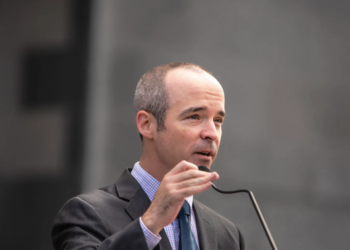Eight trade associations and two Sacramento County politicians are suing to stop a new anti-pay-to-play law that prevents elected officials from voting on matters involving the people and companies who contribute to their campaigns.
Senate Bill 1439, in effect since Jan. 1, requires public officeholders — from city councils to school boards, water boards and county supervisors — to recuse themselves from votes and discussions if the official has received more than $250 within 12 months from someone with a financial interest in the decision. Supporters argued the new law, signed by Gov. Gavin Newsom in September, ends blatant, but until now legal, influence peddling across the state.
But the newly filed litigation against the state’s Fair Political Practices Commission, the agency tasked with enforcing it, alleges the law is overly broad, improperly alters the state’s Political Reform Act and infringes on constitutional free speech protections related to the right to petition governments.
“For decades, our courts have held that the making and receiving of campaign contributions is an exercise of this constitutional right,” wrote attorney Thomas Hiltachk in a petition asking the Sacramento County Superior Court to intercede.
The Political Reform Act, passed by voters in 1974, already established similar rules for appointed officers, such as members of boards or commissions, but excluded elected officials from local government agencies. The new law removes that exception.
An amendment to the Political Reform Act requires a two-thirds vote of each house of the Legislature and must align with the act’s “purpose.” SB 1439 allegedly conflicts with that purpose by attempting to regulate campaign contributions in a way that was not originally intended, according to the lawsuit.
The plaintiffs behind the lawsuit include the Family Business Association of California, California Restaurant Association, California Retailers Association, California Building…
Read the full article here







